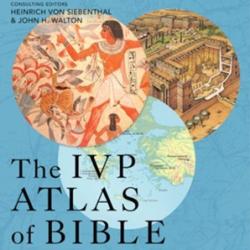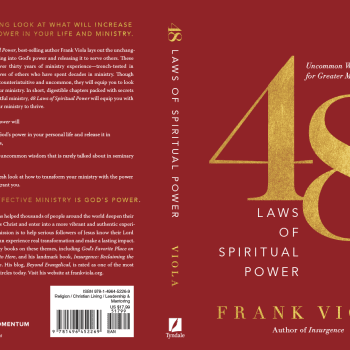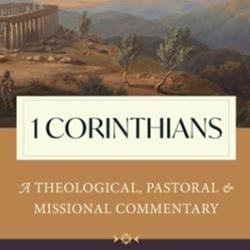John Koessler has written a new book called The Radical Pursuit of Rest: Escaping the Productivity Trap.
Productivity and rest are two key themes I address quite a bit. So I was interested to see what John had to say about the subject.
I caught up with John to talk about his new book.
Enjoy!
Instead of asking, “what is your book about,” I’m going to ask the question that’s behind that question. And that unspoken question is, “how are readers going to benefit from reading your book?”
John Koessler: I hope that readers will find permission to step off the treadmill of a performance-oriented faith and accept Christ’s invitation into rest. I want them to realize that their value in God’s sight is not determined by their usefulness in the church.
Their eyes will be opened to the degree to which the market-driven culture of the church has reduced it from being a kingdom of priests to a service industry whose primary mission is to provide spiritual goods and services to the masses. Readers will learn to distinguish true rest from false and will understand why rest seems so hard for us.
There are practical suggestions in the book but its real benefit is its message that rest is both a location and an identity. There are disciplines that can help us to rest but true rest can never be seized by force. It is always taken hold of freely by faith.
Tell us a bit about the experiences that shaped the insights in the book.
John Koessler: Most of my books are a form of self-therapy. For some time now I have been troubled by the persistent message I hear in church that we are really only of value if we are doing something. This is reflected in statements that beg, “If you’ve only come here to worship…”
The typical church is highly driven, constantly striving to exceed its current level of activity. The leadership ethos of today’s church has been shaped by the corporate world where productivity is considered the highest good of the organization. On a personal level I find that I am often caught by my own personal and spiritual ambition and the sense that I am not doing anything for Christ.
On the one hand, I feel like I have too much to do and at the same time whatever I am doing never seems to be enough. I often return to Christ’s invitation to rest and His promise of the easy yoke and wonder why mine feels so heavy. All of this prompted me to begin exploring the topic or biblical rest.
You can talk about this throughout the book, but sketch out practically how a Christian find rest in the midst of her or his busy and overwhelming schedules?
John Koessler: I think the first step is to recognize that rest is a location before it is a practice. We tend to think of rest as something that we do and there is a measure of truth in this. There are disciplines like solitude and silence that can help us experience the rest of God.
But there is also a danger that these disciplines will turn into another form or work. Someone recently put it to me this way: “All this talk about disciplines of rest…it makes me tired just thinking about it!” Rest begins when we enter into a relationship with God through Jesus Christ. When we do that we are entering into a state of rest because it means that we recognize that everything that needs to be done to make us right with God has already been done.
We are also entering into a relationship where the energy to serve comes from God. At the same time there are practical steps that we can take to help us experience rest. These are not magic. In most cases they are steps we take to make room create space in our lives for God. I don’t mean this literally. God is always present with us. But we are often distracted. When we turn off the smart phone and the computer, find a place of solitude, or practice silence we position ourselves to be more aware of His presence.
Why is rest sacred and what do the Scriptures teach about it?
John Koessler: Rest is sacred because rest begins with God. God is the first one to rest in Scripture. This is amazing when you consider that God never grows weary and is never in need of sleep. Yet when the Bible says that God rested on the seventh day it means exactly what it says.
This was no sham rest–the kind of pretending a parent might do to urge a child to take a nap. The rest of God is the rest of completion. This is the same rest that you and I enter into when we accept Christ’s invitation. Another word for this rest is grace.
Rest is also sacred because it is a dynamic that God has introduced into the life of His people. This was first experienced in the form of the Sabbath. The Sabbath was more than a weekly observance in the life of Israel. Israel’s Sabbath experience was an experiential signpost woven into the fabric of their common life that pointed to the rest of God.
But to fully grasp the biblical idea of rest we must look beyond the biblical institution of the Sabbath day and the practice of Sabbath discipline and realize that rest is ultimately a person. When Jesus invites to come to Him, He invites to enter His kingdom of rest.
What do you say to the person who has the idea that resting, recreation, and leisure are wasting time?
John Koessler: I would say that in some measure they are right. If we want to pursue rest, we must learn how to be unproductive. Rest demands that we be in a state of leisure. It is a form of waiting and there is a degree of passivity in it. Those who rest are not trying to be productive. They let things happen.
We tend to think of rest as an indulgence. But in reality rest involves a measure of self-denial. Rest requires that we cease our ordinary activities and break way from our daily relationships. When we are at rest we are often unavailable. Sleep is a good example of this. The prospect of sleep can be unnerving. While we sleep the world continues to be active. We are oblivious to our surroundings, supine and powerless.
We are not in control during sleep but must depend upon the mercy and protection of God. In a way when we rest we hand our time and our agenda over to God. We are trusting Him to look out for our interests. In the end, however, I am convinced that this is not a waste. We are not squandering time when we practice genuine leisure. In fact, I have often found that the opposite is the case.
It is when I am overwhelmed with busyness and frantically trying to make my mark and accomplish my agenda that I come to the end of the day with a sense that I have wasted it. What has been outcome of all this frenetic activity? Tomorrow I will get up and do the same all over again. I will attend the same meetings and have the same conversations. Haven’t we all found, after taking extended time off and returning to the frenzy of everyday life, that things haven’t changed at all?
What is more, true leisure, as theologian Josef Pieper observes, is an end in itself. When work loses its purpose and becomes an end in itself, rest also loses its meaning. But rest in its rightful place needs nothing to justify it. We do not work in order to rest. We do not rest in order to work. Rest as the Bible describes it is our destiny. This must be true if God is at the center of it.
What do you hope readers will walk away with after they finish your book?
John Koessler: I hope they come away from my book with a compelling desire to accept Jesus’ invitation to rest. I also hope that they will be able to silence the accusing voice (either their own inner voice or that of well-meaning church leaders) which tells them their value in God’s sight is a function of what they produce.
I’d like them to begin to experiment with some of the practices that can help us to get a better handle on God’s rest. I do not want them to think that a life of rest is something that can only be experienced by a select few. When I write about the radical pursuit of rest, I am not talking about taking extreme measures in our effort to find rest.
In a world made up of workers, rest itself is a radical notion. In a church that believes that worshipers must also be workers in order to justify their presence, rest is an uncommon experience. So more than anything else my hope is that readers will walk away with a sense of rest.














